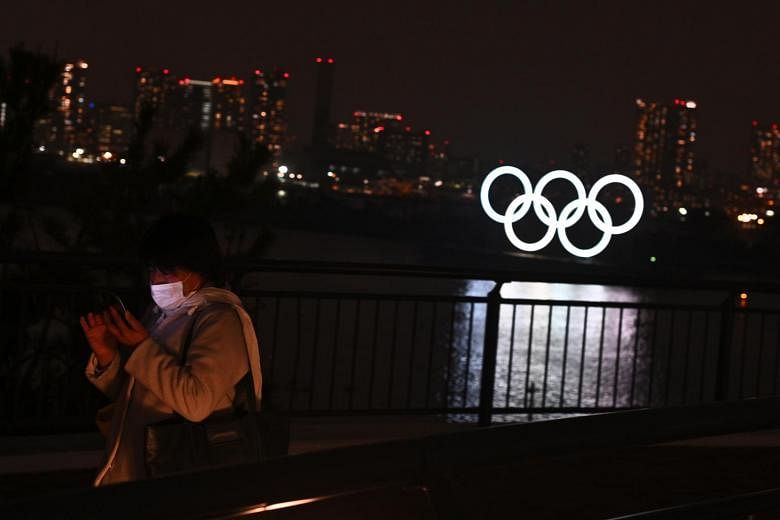LAUSANNE • The postponement of the Tokyo Olympics and the shutdown of the sporting calendar because of the coronavirus pandemic will hit international sports federations in the pocket.
Many sports that are part of the Games depend heavily on the quadrennial payouts from the International Olympic Committee (IOC).
The 28 international federations (IFs) of the sports that were due to be present in Tokyo would have received substantial sums.
However, the postponement of the Games until next year could lead to a freeze in their payment.
Andrew Ryan, director-general of the Association of International Olympic Summer Sports Federations (Asoif), which is responsible for distributing this money, said: "We have a lot of IFs with substantial reserves, but others work on a different business model.
"They have income from major events which are suspended, which can be a problem for the cash flow if they don't have enough reserves."
The payout totalled US$520 million (S$743.7 million) after the 2016 Rio Games, but the five additions to the programme - karate, surfing, skateboarding, climbing and baseball/softball - are not eligible.
"The Olympic money could be less than for Rio," Ryan warned before adding: "My advice is to budget the same as in Rio".
The federations receive money on a sliding scale determined by their audience and size.
The three largest (athletics, swimming and gymnastics) can expect approximately US$40 million.
-
US$7m
-
Lowest tier of IOC funding (S$10 million) for rugby, golf, modern pentathlon.
For the second tier (cycling, basketball, volleyball, football and tennis), the sum is US$25 million.
For group three, which comprises eight sports, including boxing, rowing, judo and table tennis, it is US$17 million.
The nine in the next level (including sailing, canoeing and fencing) receive US$12 million. For the last category (rugby, golf, modern pentathlon), the payout is US$7 million.
The largest associations, such as Fifa, which has a US$1.5 billion nest egg, or basketball body Fiba, which has 44.4 million Swiss francs (S$66 million) in reserves, IOC aid represents a small proportion of their income.
But for others, it is vital.
"Some IFs probably don't have the cash flow to survive one year," said Ryan. The postponement of the Games also has a domino effect, forcing IFs to reschedule their own money-earning competitions.
But with the sporting calendar decimated by Covid-19, things are getting increasingly tight.
The International Table Tennis Federation has begun to cost cuts, with its executive committee agreeing to reduce expenses and senior staff offering to take salary reductions, its marketing director Matt Pound confirmed, and "further cuts will take place if needed".
While the IOC continues to study the number of variables as a result of the Games' postponement, some IFs are thinking about asking for a share of the public aid set up to deal with the Covid-19 crisis.
Confirming that the 22 Asoif members based in Switzerland would be eligible for financial assistance, Philippe Leuba, state councillor of the canton of Vaud, said: "Can sports federations benefit from federal aid? The answer is yes, in principle."
AGENCE FRANCE-PRESSE

